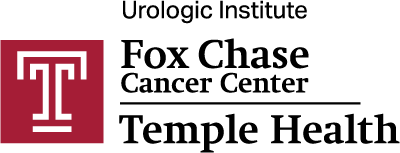Cardiotoxic Therapies in Cancer Treatment: What Providers Need to Know
Article Summary
- Cardiotoxicity as a result of cancer treatment is a becoming an increasing problem, as cancer survival rates have increased, and survivors have started living into their 70s and beyond.
- Heart disease can be caused or significantly exacerbated by cancer treatment itself.
- Of note, breast cancer patients treated with anthracycline and trastuzumab, had a 20% five-year risk of developing cardiomyopathy, which is the highest of any combination therapy.
Thanks to advances in treatment, more people are surviving cancer and living into their 60s, 70s, and beyond. But with this increase in survival has also come an increase in cardiovascular disease for this population. As a result, providers must keep cardiotoxicity in mind as they implement treatment plans for their patients, says Eman Hamad, MD, director of Cardio-Oncology and the Advanced Heart Failure and Transplant Program at Temple University Hospital.
Early detection of cardiotoxicity is key, as problems like heart failure can often be prevented when treatment is started early, and many patients can safely continue and complete cancer treatments with proper intervention.
The Link Between Cardiovascular Disease and Cancer
“We know that in any patient, heart disease and cancer are likely to overlap,” Hamad says.
These overlapping conditions have a significant impact on morbidity and mortality. In some survivors, cardiovascular disease can be present before a cancer diagnosis. In others, it may be caused or exacerbated by the cancer treatment itself.
Studies of breast cancer survivors show that, over time, cardiovascular disease surpasses cancer as the survivors’ leading cause of death. Research shows patients with early-stage breast cancer are four times more likely to die from non-cancerous causes, with 45% of those patients passing away due to cardiovascular causes, Hamad says.
While all cancer treatments increase cardiovascular risk in cancer survivors, the risk is closely linked to the prescribed treatment therapies: breast cancer patients treated with anthracycline and trastuzumab, for example, had a 20% five-year risk of developing cardiomyopathy, the highest of any therapy or combination of therapies.
Understanding Cardio-Oncology Guidelines
Hamad recommends the European Society of Cardiology 2022 guidelines on cardio-oncology for a comprehensive overview on managing these patients, including how to stratify cardiotoxicity, which cardiac imaging modalities should be used to monitor patients, and how GLS can be used to spot early signs of cardiotoxicity so providers can intervene.
Research shows that early intervention is key. For example, studies show that ACE inhibitors and beta blockers can be effective in preventing heart failure in patients being treated with HER-2 targeted therapies, but only if started in the early stages.
“Timing of initiation is critical,” Hamad says.
Hamad shares more insights, including what providers should know about some of the most common cardiotoxic therapies, in her presentation linked above.
Managing the Cardiovascular Risks of Cancer Therapy
Cancer and cardiovascular disease often overlap and many cancer therapies increase risk for cardiomyopathy, heart failure, and more.
Providers would benefit from understanding risk factors and keeping an eye out for warning signs in their patients, since early detection and timely intervention can be critical in preventing or reversing damage to the heart, says Eman Hamad, MD, director of the Cardio-Oncology Program and the Advanced Heart Failure and Transplant Program at Temple University Hospital.
In this talk, Hamad provides an overview of the latest in cardio-oncology, with insights for providers on topics including:
- Impacts of cardiotoxicity on morbidity and mortality
- How cancer treatments affect the cardiovascular system
- What providers should know about the most common cardiotoxic therapies
- Current guidelines for managing patients


